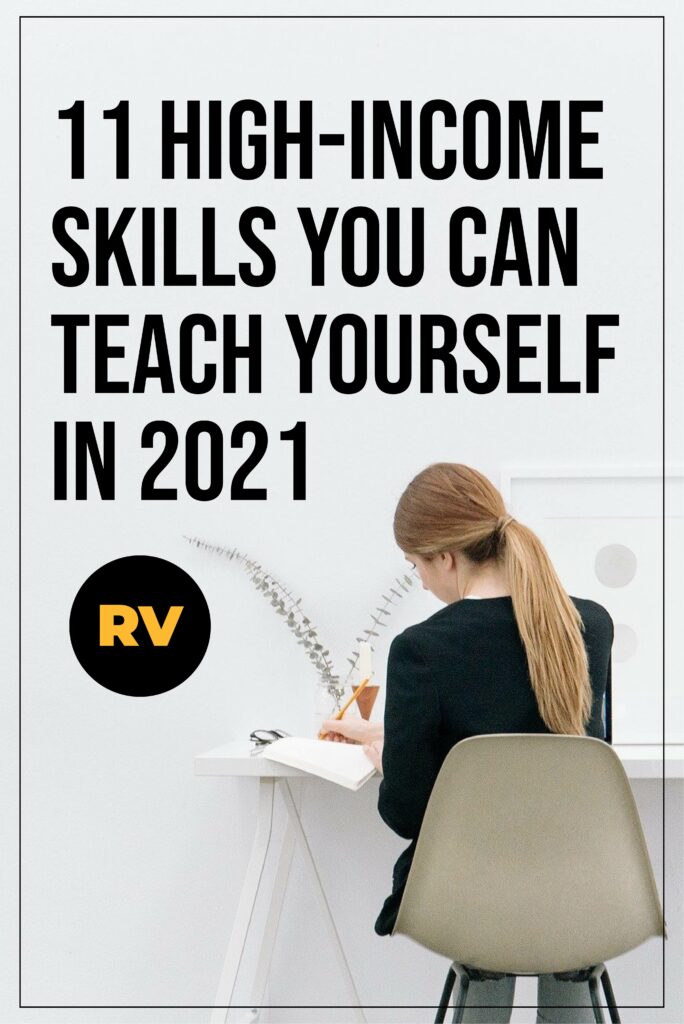I sort of became a consultant by accident–I never planned on starting a consulting business.
But I dove in headfirst.
In this post, I want to talk about how I landed a $40,000 consulting client and what I think you should know about starting a consulting business.
It kind of started like this. I was working for the government. I was actually making pretty good money. I didn’t hate my job, but I hated my commute. I wanted some more flexibility.
And I was always networking. Always.
If you want to watch instead of read, check out the video! Post continues below.
This post contains links to affiliate products, which–if you choose to purchase–pay us a commission at no extra cost to you. This helps to support our work. We only promote products we’ve used and love.
One of the people I had met was a leader of a nonprofit organization in the policy field I was working in: immigration. I was in the process of talking to her about getting hired to come and do work for her as an employee.
And I realized that there was actually no way I could go work for her as an employee, without taking a serious, serious pay cut. I was making quite a bit of money at the government and it would have been, like a 30k pay cut.
So I said something that would change my life forever, “You could just hire me as a consultant.”
And she said yes.
So I had a forty thousand dollar consulting contract. And we sat down and worked out the details, the deliverables, and what our work together would look like.
The deal was actually a win-win. I got to come work from home where I am right now. I love working from home. (This was before the pandemic when it wasn’t that common to work from home, at least in my field.)
She got everything she needed done. We just made a list of the projects that she was hiring me for: project management, grant writing, etc.
It gave me the flexibility to start my company. Because I didn’t have to be there nine to five. I could go and start looking for other clients. I could do other work. I could work on Roostervane, which is what I did a lot of. I even invested some of that money back into the business and incorporated. So I actually turned this into a business that I own.
What are the benefits of starting a consulting business?
1. Flexibility
Flexibility is a huge benefit. You can do work from anywhere.
You can work at 10:00 at night, you can work at 6:00 in the morning. Work from a coffee shop, which is one of my favorite things to do.
In general, many kinds of consulting give you flexibility, as long as you’re delivering the results.

Most of the consulting I do, the people that I know do is quite a bit more flexible.
2. Do work you care about
Choose the work you want to do. Consulting makes it possible.
I meet a lot of people who want to work for nonprofits or social enterprises. But it can be really challenging to actually make a living doing that work.
If you want to do work for a homelessness nonprofit in your town, they probably don’t have the money to pay you what you would get paid in the corporate world. The nice thing about consulting is you can offer some of your skills and whatever their budget is, you can do some great work for them. Start a program, do research, or whatever. Then you can go and find another client who will make up the rest of your of your money–maybe even more corporate ones.
So you actually get more money than you might make working full time somewhere and the nonprofit gets the benefit of your expertise. That’s a great deal for everyone!
3. Separate time from money
When I consult, I actually have an hourly rate in my head. It might be as low as $100 or as high as $350. I never tell this to a client though… Because I don’t work by the hour. I use it for my costing, estimate the hours I think it will take, and use that to build a price–blended with what I think it’s worth to the client (and how badly I want the work).
But I don’t ever tell hours to a client. They don’t hire me for the hour. They hire me for a result.
Ultimately, consulting should not be about the hours you sit your butt in the chair. That’s a contract. Consulting is about delivering a result. And whether you’re doing a program evaluation, or a research paper, or advising on a process, you’re doing some sort of work that has a beginning and an end–and is what we call a deliverable,
Deliverables are how we measure consulting.
And if you want to do consulting, that’s how you should frame your work.
What are the challenges of starting a consulting business?
1. You need a bit of business knowledge
You have to know a little bit about business.
Not a lot. I mean, I’m far from a business expert.
When I started my company, I went and talked to a lawyer and an accountant. I hired both of those people and both of them were totally worth their weight in gold.
You’ll need to know some business basics, like how to do estimates, how to do a little bit of basic bookkeeping, how to send an invoice, how to keep your receipts, that sort of thing. And I totally recommend Freshbooks for this. If you’re starting out, it’s super easy to use, really intuitive.
Roostervane readers can get 50% off their first 3 months of Freshbooks here!
So, you need those kind of business basics. And you can learn it. I think anyone can learn it’s not that hard, but it can be a bit of a hurdle for people starting out.
Read more…
7 Easy Steps To Launch Your Consulting Business This Week
2. Scale
The second challenge with consulting is scale. Even though you’ve separated your time from money with consulting, you still are working by the hour. So even if you’re making a lot every hour, you’re still going to hit a ceiling to what you can actually earn, or else become exhausted by filling every waking hour with work, or both.
It’s challenging to scale a consulting business, but it is possible. For example, if you’re handling the same project again and again and again, s there a way that you can kind of automate some of the stuff that you’re doing? So, for example, if I was always going into companies and teaching them how to think through like management training, could I create a video course then take them through questions in person?
Creativity can bring some scale, but there are limits. Now, if you’re not consulting at all right now, and you’re working for somebody else, I’d still say go and start consulting and figure out how to do it first. If you do it well, you’ll still make way more money than you’ll make working for somebody else. Then you can address the problem of scale later.
Planning Strategically: When I started, I could have called my company “Cornthwaite Consulting.” But I’m glad I didn’t. I called it Thinkhouse. It’s a generic name, and not linked to me. This means that, if in the future I want to expand it and change what I do and have different people doing the offerings, it won’t actually matter. Plus I have an asset to sell! Someone might buy a company called Thinkhouse. It’s pretty unlikely anyone would buy Cornthwaite Consulting.
3. Selling
You need to learn how to sell. And selling, I think, is a challenge at first–especially for those of us who weren’t raised doing it.
I had a mental block to sales and I was taught implicitly that salespeople were kind of evil.
So for me, it was a challenge to go say to someone, “I want to sell you this and it’s going to cost you so much.”
I think almost all of my contracts have come from either networking or people seeing my brand and reaching out to me. So I’m not actually like cold calling or anything like that. But you still have to be able to say, like sell something.
You need to be able to ask for what you’re worth. I promise you, if you’re just starting consulting, you will probably be underpaid at least once. You just have to accept it. It’s just a fact of life and you learn from it.
One subtle thing that I would do based on my experience is tell people you’re a consultant, just like I did when I was having those meetings that eventually landed me that first client.

When you sit down with somebody, you can say, “I’m looking for a job or consulting work.”
So one of my favorite strategies to becoming a consultant is just telling people you are one. No imposter syndrome needed here. If you’re willing to take consulting projects, you are a consultant.
There are also platforms that can help you land clients. I think of Upwork, or even LinkedIn or Indeed. You can search for “consultant.”
4. Balance
The final challenge with consulting is the balance between producing and selling. One of the traps consultants get into is that they win a contract and they go and start working on it and then they ignore their selling. Or, they’re so busy selling, networking, they end up with more work than they can handle. It’s a great problem to have. But you gotta deliver! That’s where maybe you can hire somebody to pitch in.
Conclusion
Really, I think the best way to learn consulting is to just do a jump in, try it and and see where it takes you! You’ll learn as you go. You’re really will. And there’s nothing like experience to be the teacher in this case. Good luck!






